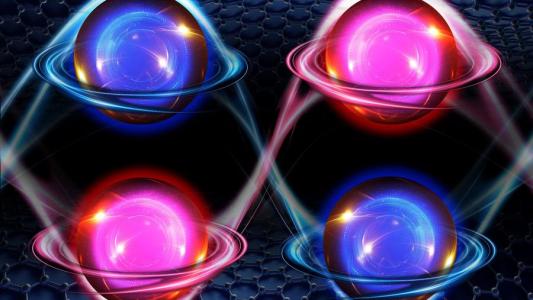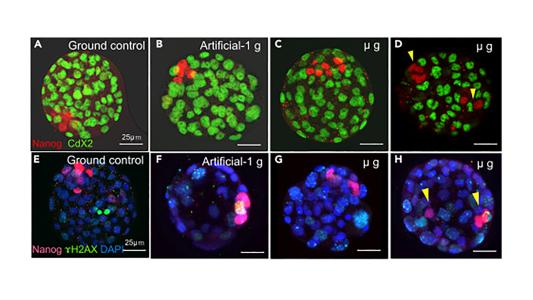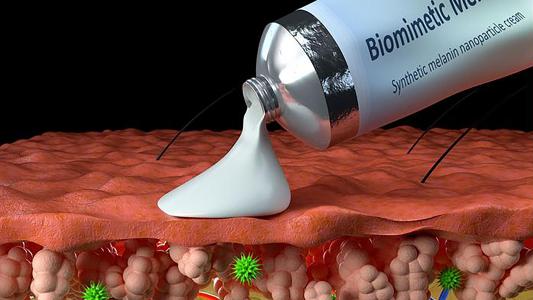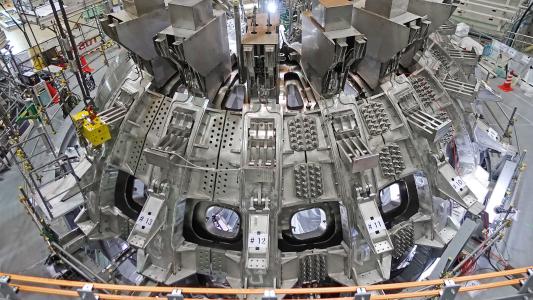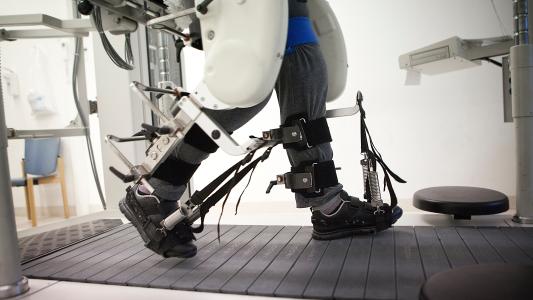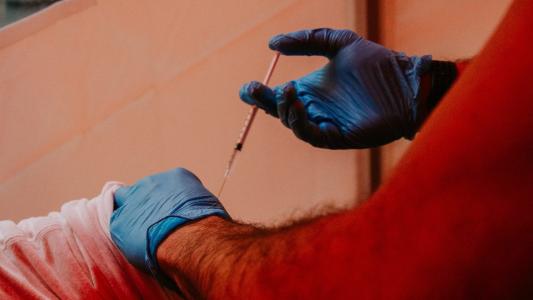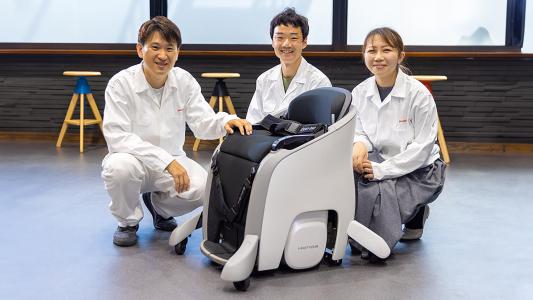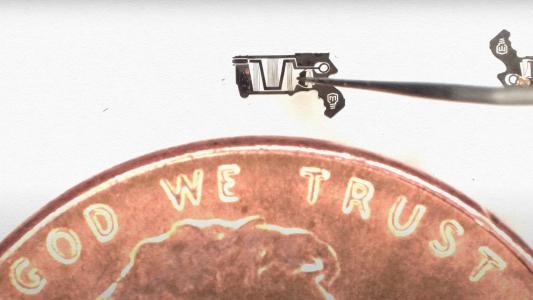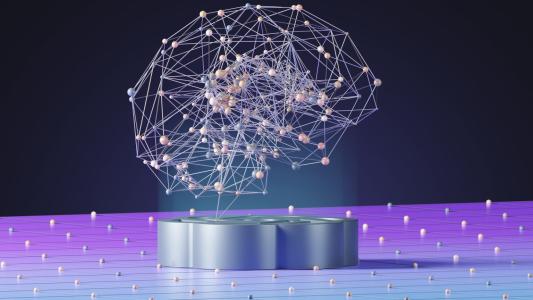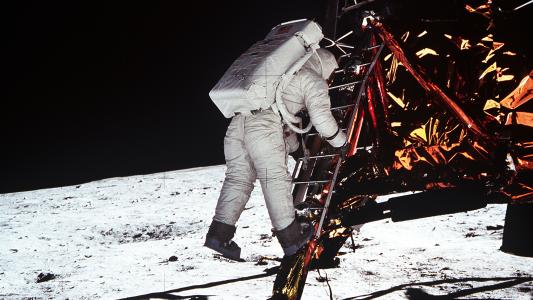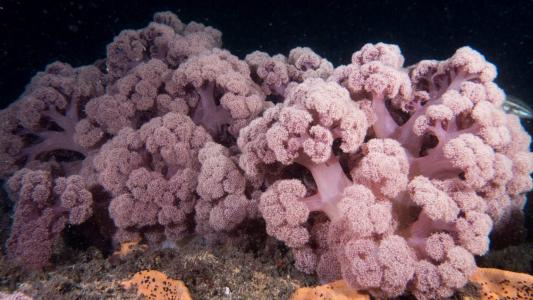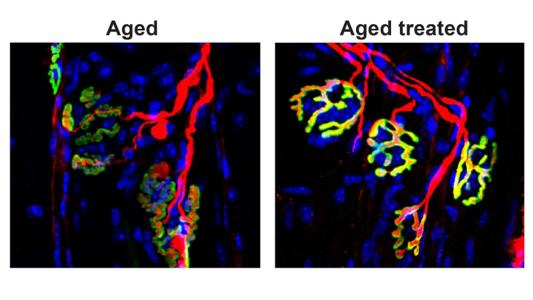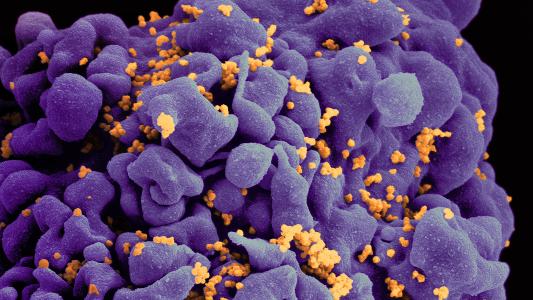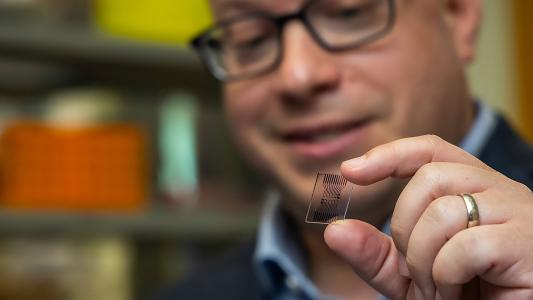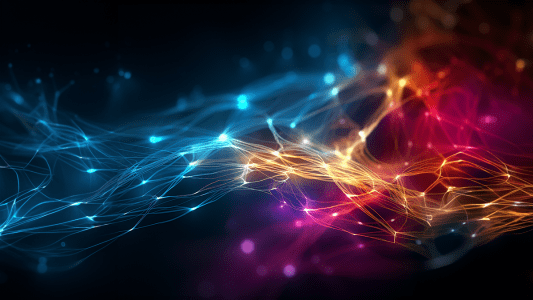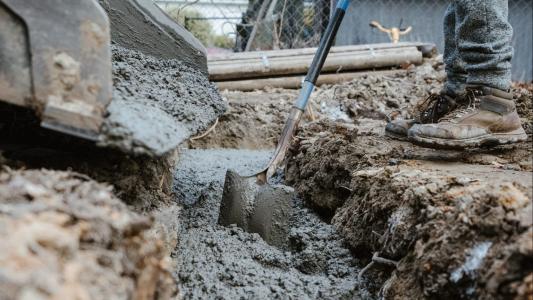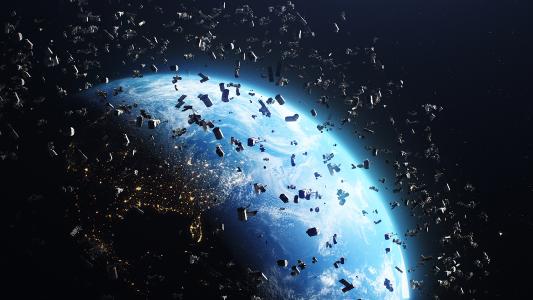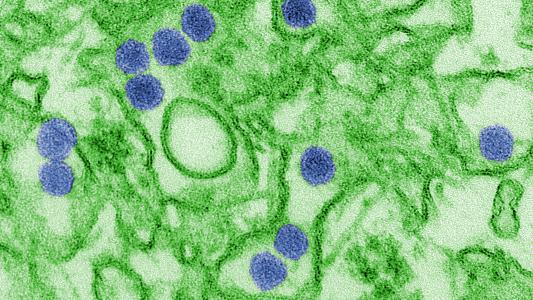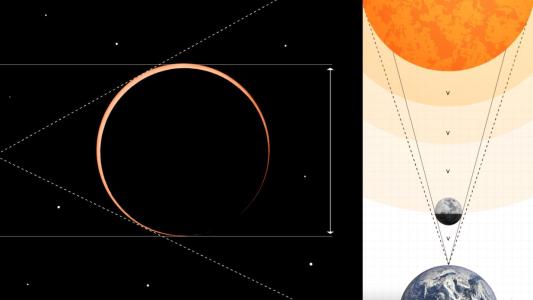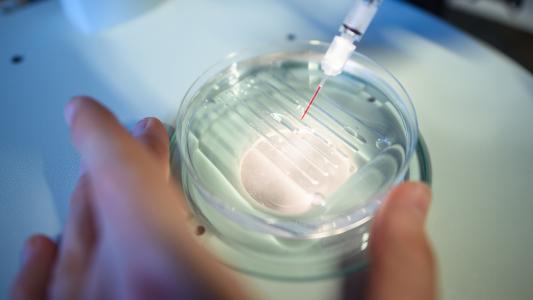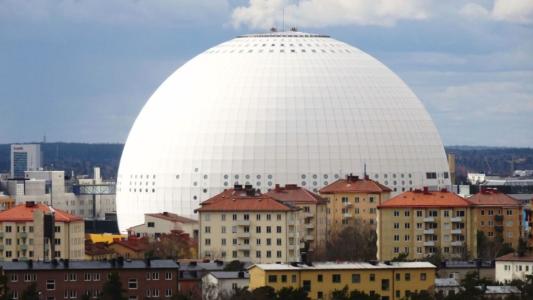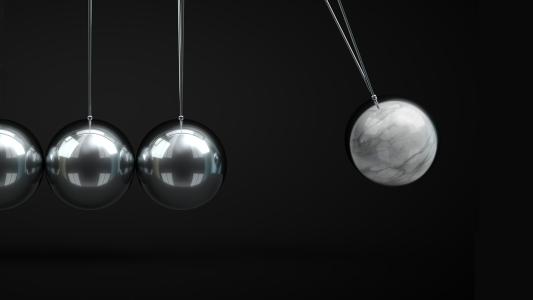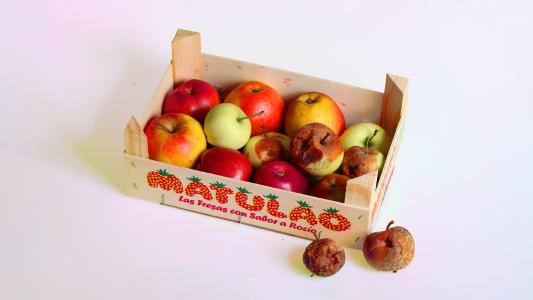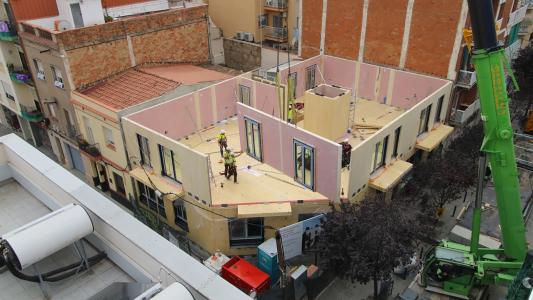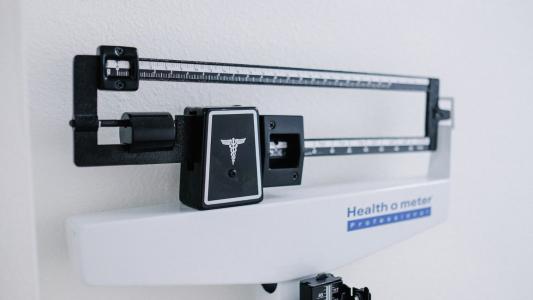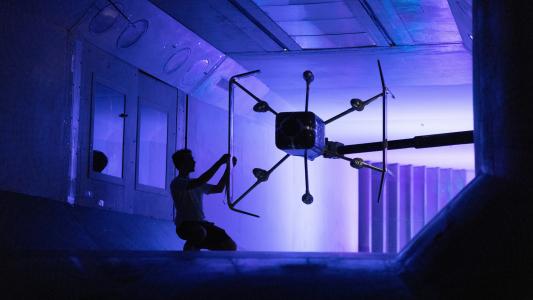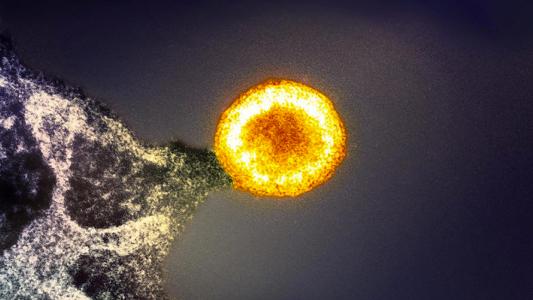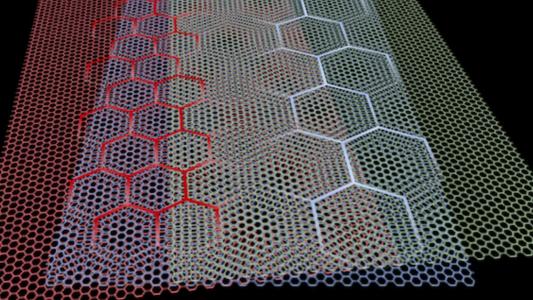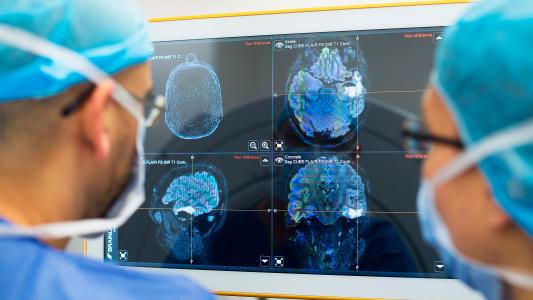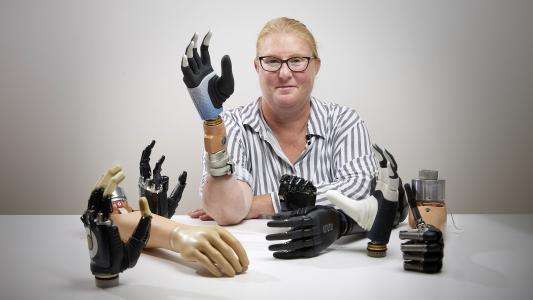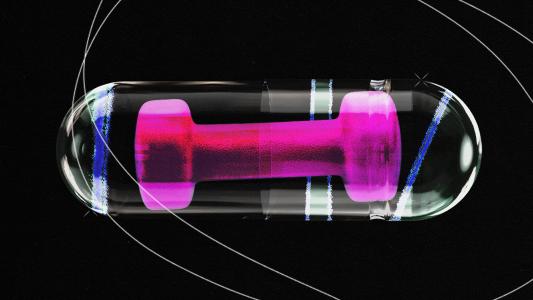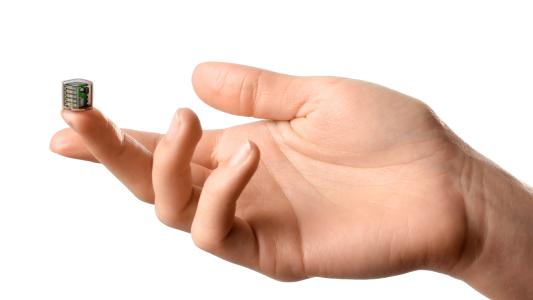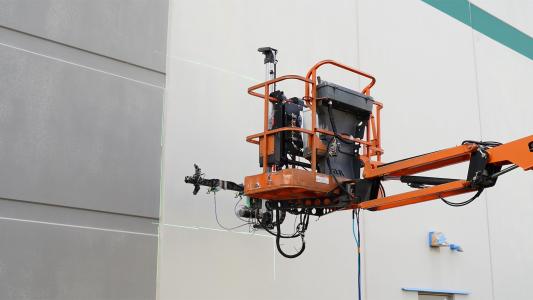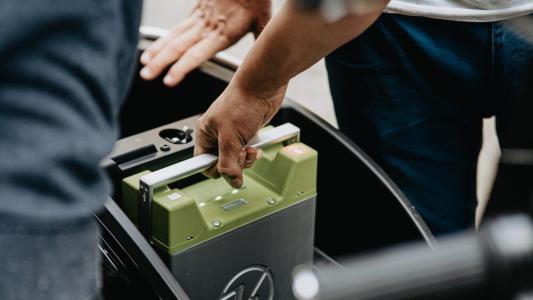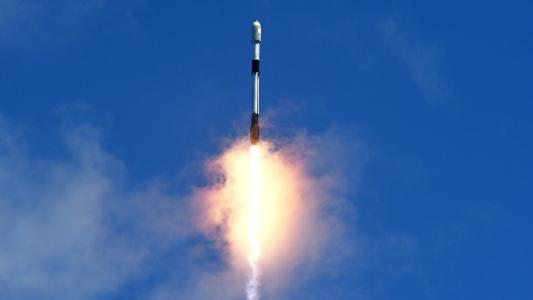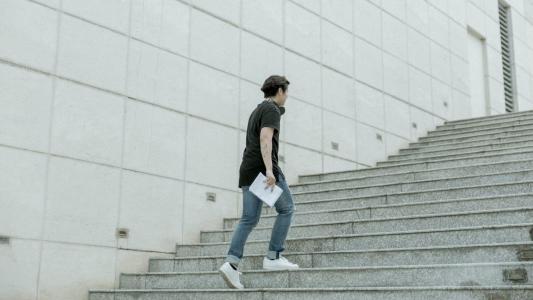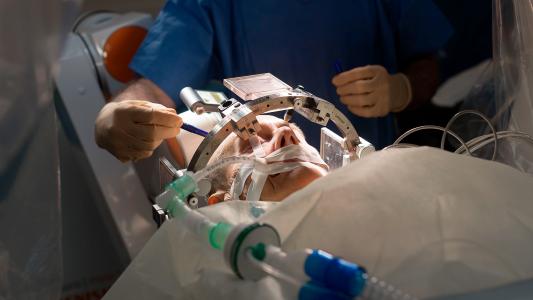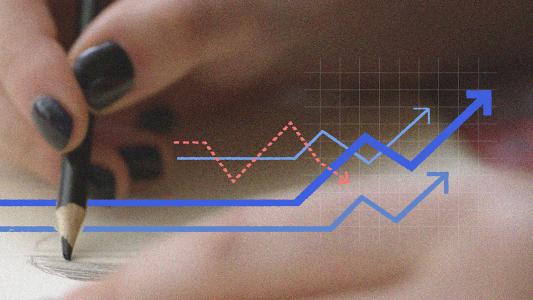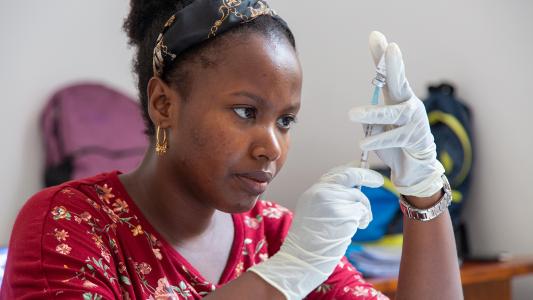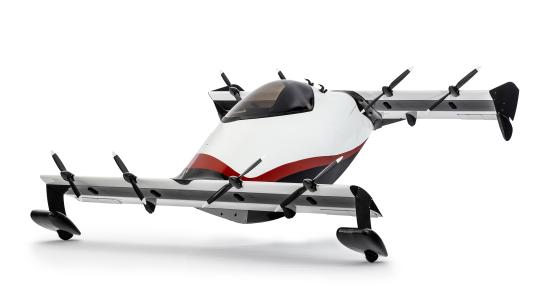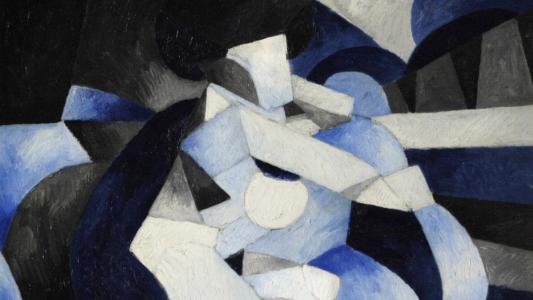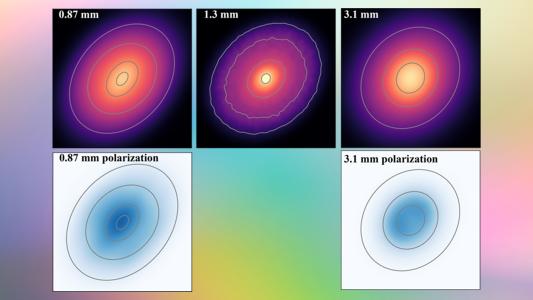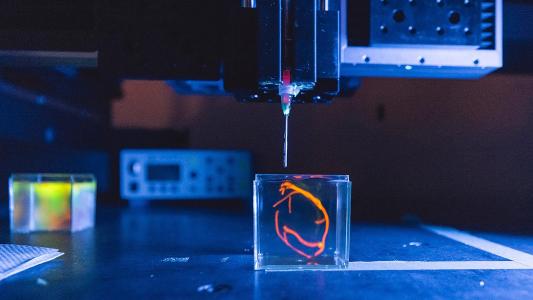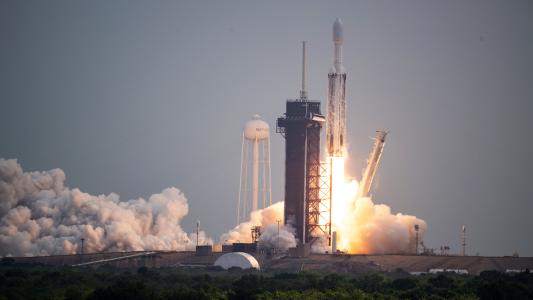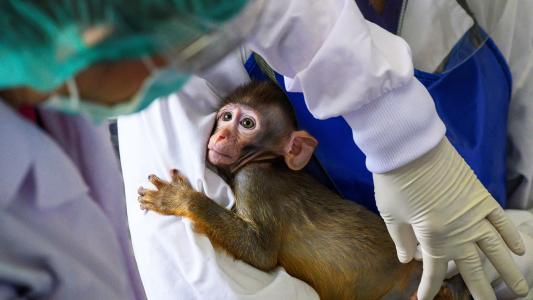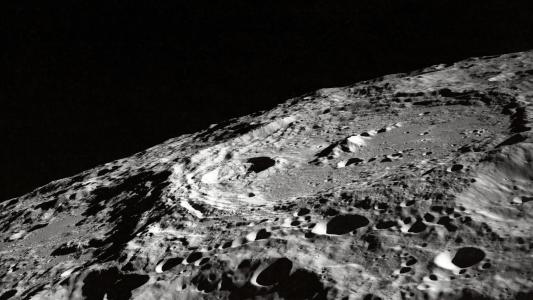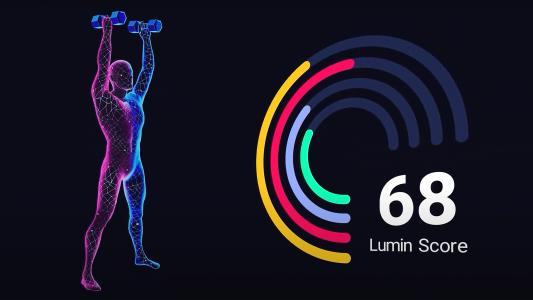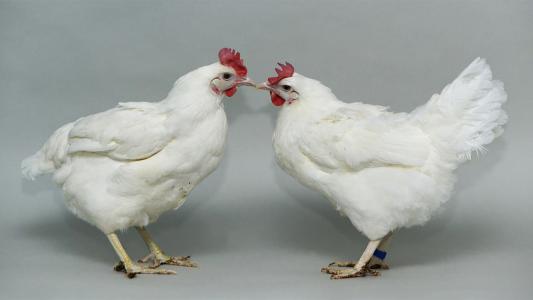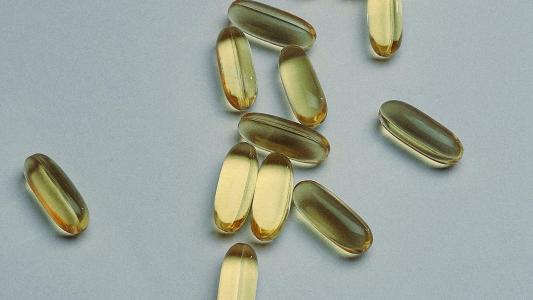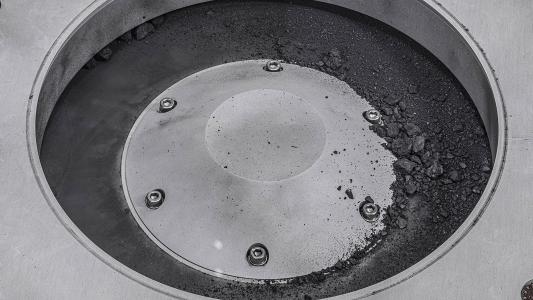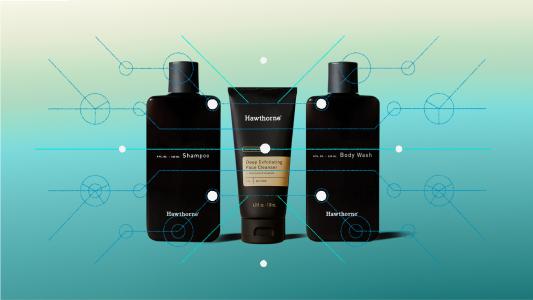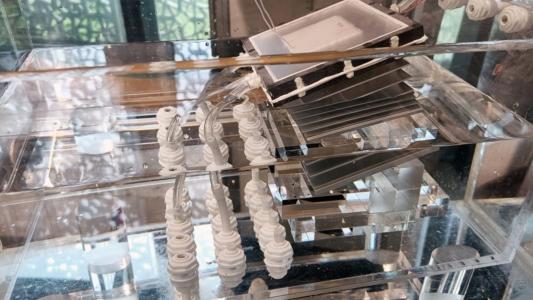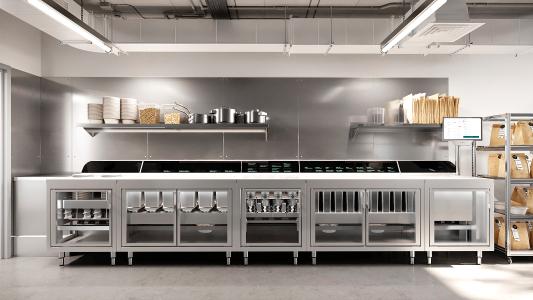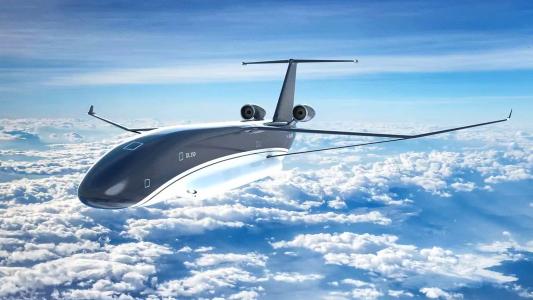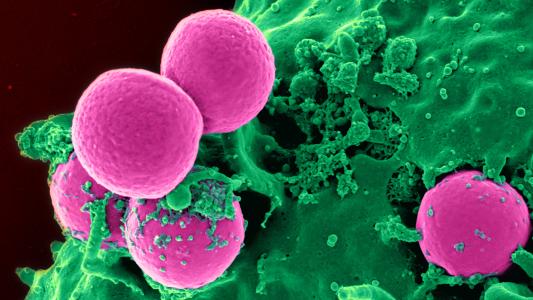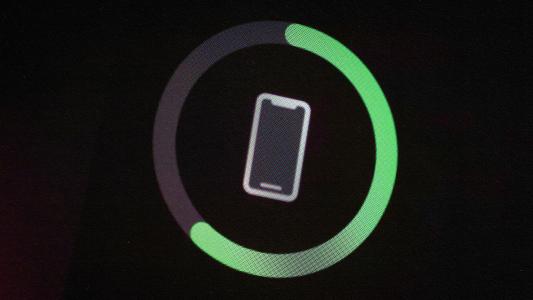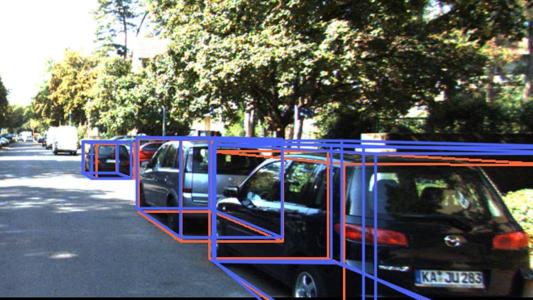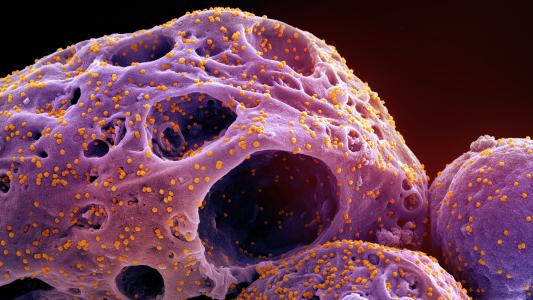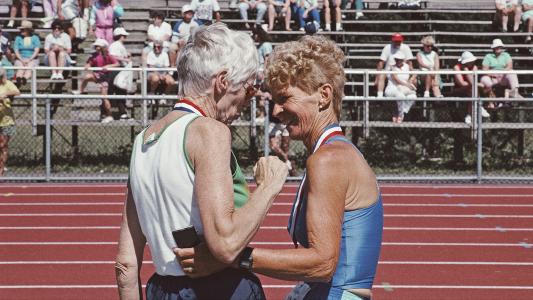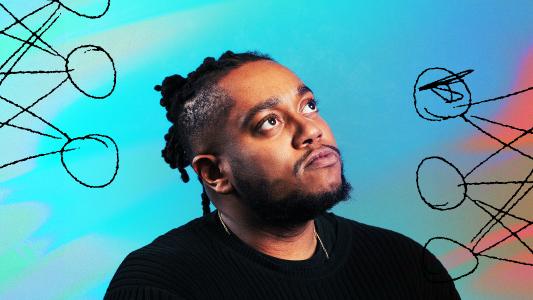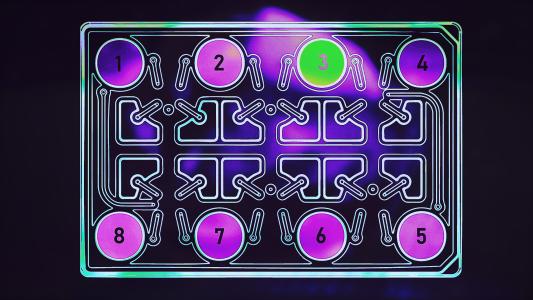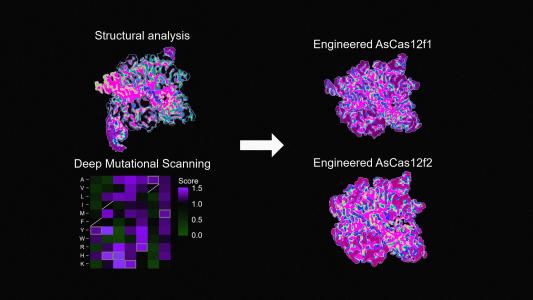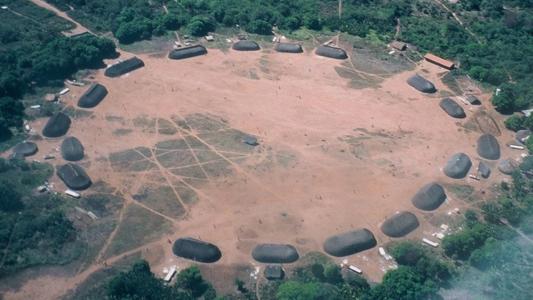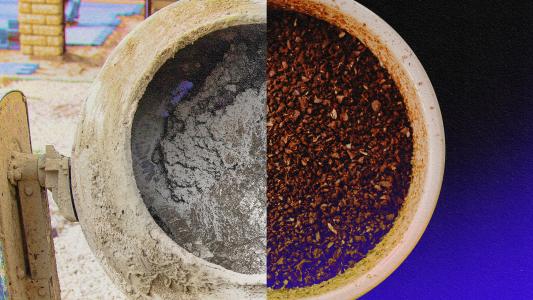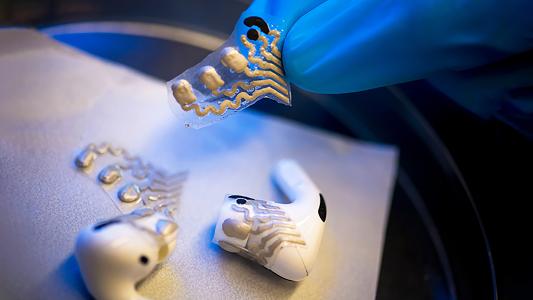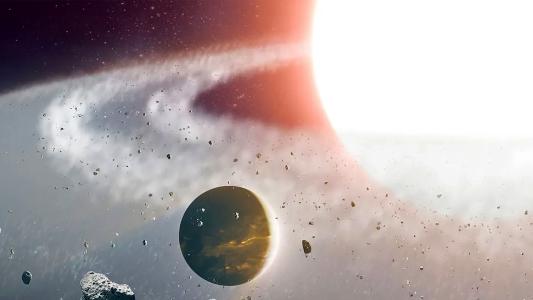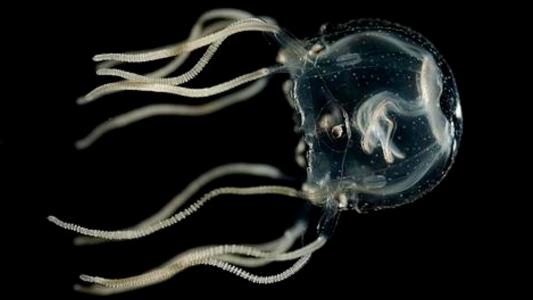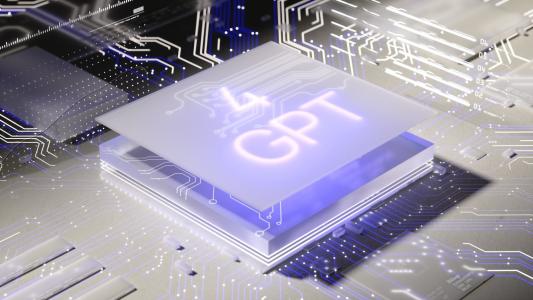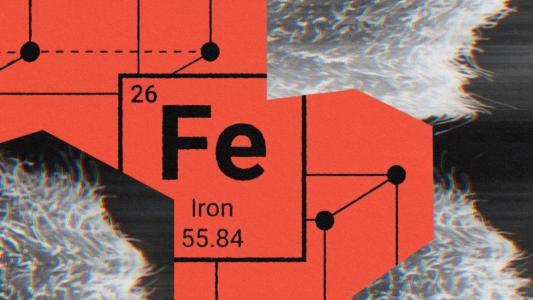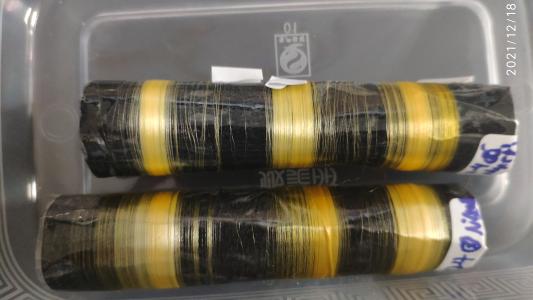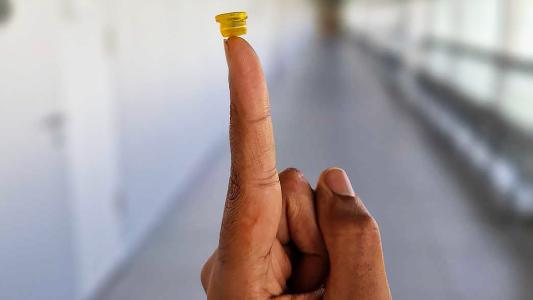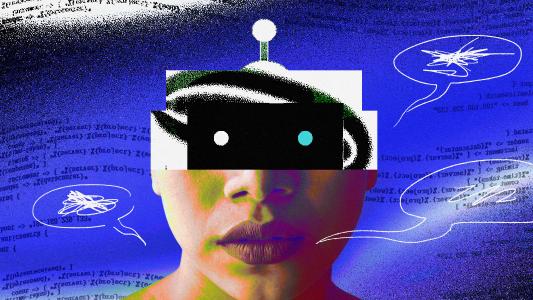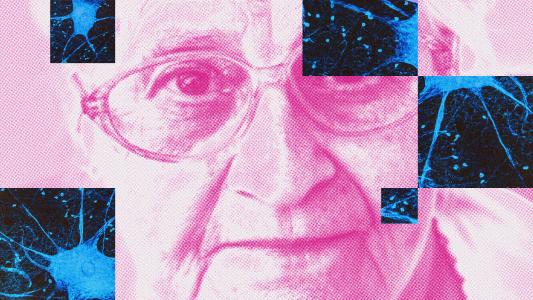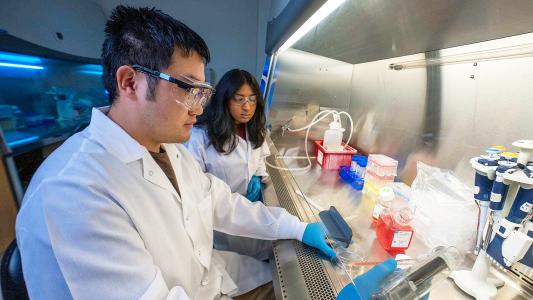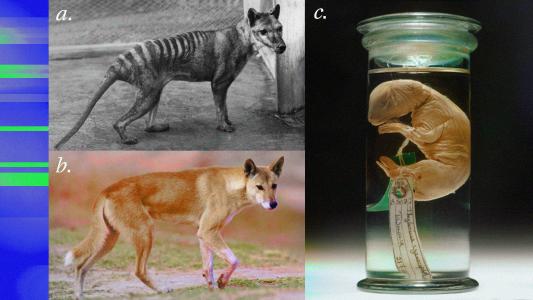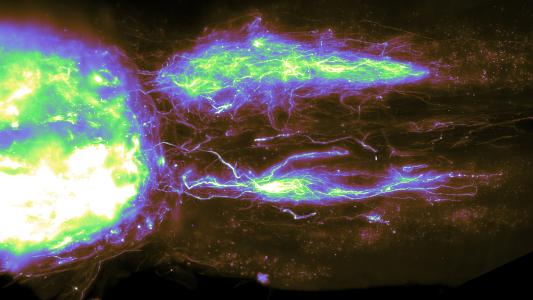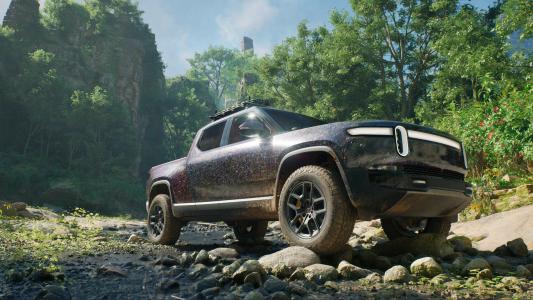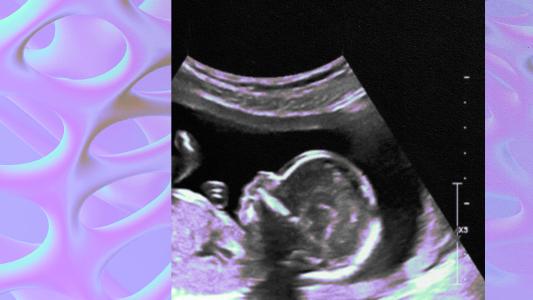From a five-layer graphene sandwich, a rare electronic state emerges
When stacked in layers in a rhombohedral pattern, graphene takes on a rare state that could advance powerful magnetic memory devices.
Mouse embryos grown in space for the first time
A mouse experiment on the International Space Station suggests humans might one day be able to reproduce in space.
New “super melanin” protects and heals skin
A “super-charged” synthetic melanin is even better at protecting the skin and healing damage than the natural kind.
The psychedelic DMT causes the brain to become hyperconnected, scans reveal
Researchers gave 20 healthy subjects potent, intravenous doses of the psychedelic DMT and observed their brains. Here's what they found.
Capsaicin: Could the compound that gives chili peppers their heat treat diabetes and obesity?
Capsaicin, the compound that gives peppers their burn, could help with diabetes and obesity, but only at an uncomfortably high dose.
Japan sets new nuclear fusion record
A massive nuclear fusion experiment just hit a major milestone, potentially putting us a little closer to a future of limitless clean energy.
Gold-laced gel could help you recover from a major muscle injury
A combination of electrical stimulation and a gold nanoparticle-laced hydrogel could one day help people recover from major muscle injuries.
T-Minus: Stranded space drugs, a new moon lander, and more
Freethink's weekly countdown of the biggest space news, featuring a stranded space factory, Jeff Bezos' new moon lander, and more.
This AI companion could forever change how you feel about tech
Silicon Valley tech startup New Computer has unveiled Dot, an AI companion that could forever change our relationship with tech.
How AI played an instrumental role in making mRNA vaccines
Years before Moderna created an effective mRNA vaccine against COVID, the company put into place AI systems to accelerate the research process.
Honda unveils hands-free wheelchair you steer like a Segway
Honda Robotics has unveiled a prototype of the UNI-ONE, a hands-free wheelchair that you steer with your body weight.
Ex-NASA engineer Mark Rober created the world’s smallest Nerf gun — from DNA
Mark Rober and Pallav Kosuri created a Nerf gun so tiny they had to build it out of DNA. This DNA "origami" has the potential to revolutionize engineering.
Dumbing down or wising up: how will generative AI change the way we think?
Artificial intelligence tools are now managing huge swathes of information on our behalf, potentially changing what and how we think.
A short history of insomnia and how we became obsessed with sleep
Insomnia is big business and getting bigger. When did sleep become so important, so elusive, and so expensive?
NASA spends $50K on liquid metal spacesuit material
NASA-backed engineers are developing a new spacesuit material that will use liquid metals to repel lunar dust on demand.
Elon Musk’s Starlink satellites are “leaking” signals
Starlink satellites are emitting signals that interfere with our most sensitive radio telescopes, interfering with radio astronomy.
Sex life discovery raises IVF hope for endangered purple cauliflower soft coral
The purple cauliflower soft coral Dendronephthya australis, now listed as an endangered species, has a new hope of survival with IVF.
Blocking this one protein could strengthen muscles
Stanford researchers have figured out how a therapy that blocks a single protein can reverse age-related muscle loss in mice.
CRISPR cure for HIV now tested in 3 people
Excision BioTherapeutics has shared data from the first human clinical trial of a CRISPR cure for HIV. Here's what we know — and don't know.
“Living pharmacies” could mean you never forget to take your meds again
The US government is funding the development of "living pharmacies," implants containing cells that release medications on demand.
Cardio improves cognitive function & mental health. Here’s the best way to do it at home.
While many people do cardio exercise to keep physically fit, research shows cardio also improves cognitive function and mental health.
MIT’s soft fiber implants could offer drug-free pain relief
An innovative new way to use fiber-pulses to inhibit pain.
Cleaning up one of the world’s most commonly used substances
C-Crete has created a more sustainable cement binding material that could significantly reduce the industry’s CO2 emissions.
NASA funds AI lasers to zap space junk
NASA is funding the development of AI space lasers to protect its spacecraft and astronauts from potentially deadly space junk.
T-Minus: SpaceX’s wild pace, a marsquake mystery solved, and more
Freethink's weekly countdown of the biggest space news, featuring SpaceX's launch problem, a marsquake mystery, and more.
Why 20 women were just deliberately exposed to Zika
In a first-of-its-kind human challenge trial, Johns Hopkins University researchers deliberately exposed 20 women to the Zika virus.
The 2023 annular eclipse will have huge consequences 6 months later
Only twice a year are the conditions right for the Sun, Earth, and Moon to align in space: creating conditions for either solar or lunar eclipses.
New “anti-CRISPR” discovered in viruses
A new “anti-CRISPR” system could help us control gene-editing tech and battle antibiotic-resistant superbugs.
There’s an entire solar system hiding inside Sweden
The Avicii Arena in Stockholm is the world’s largest spherical building and the center of the world’s largest scale model of our solar system.
For entrepreneurs, product positioning can be even more important than the product itself
In partnership with Million Stories
Here are 3 strategies for smarter product positioning.
Rancid food smells and tastes gross − AI tools may help scientists prevent that spoilage
A group of chemists are using artificial intelligence to extend the life of food products, by teaching AI models about rancidity.
The faster, cheaper, no-brainer way to replace dirty construction
Startups are using Sims-like software and IKEA-like manufacturing to solve the housing crisis with sustainable construction.
What BMI can’t tell us about our health
Body mass index (BMI) continues to be the go-to tool for medical doctors and population researchers despite saying little about our health.
Amazon’s Prime Air is coming to a new US city
Amazon’s Prime Air drone delivery service is expanding to three new cities and adding a drug-delivery option in an existing one.
“Hydrogel” drugs could suppress HIV with minimal treatments
An injectable solution that self-assembles into a hydrogel to deliver 6 weeks of anti-ARV drugs could make managing HIV less of a burden.
Physicists coax superconductivity and more from quasicrystals
In research that could peak interest into this enigmatic class of materials, physicists coax superconductivity and more from quasicrystals.
AI diagnoses brain tumors in 90 minutes or less
A new AI that can identify the type of brain tumor a patient has while surgeons are removing it could lead to better outcomes.
This bionic hand is fused to a woman’s bones, muscles, and nerves
A new way of merging the body with a bionic hand provided a woman with more control over her prosthetic and less phantom limb pain.
New weight loss drug acts like an “exercise pill”
A new candidate weight loss drug called SLU-PP-332 was found to boost muscular and aerobic endurance in mice.
New brain implant for depression tested in people for the first time
A tiny brain implant designed for at-home neurostimulation has been demonstrated in people for the first time.
“The twin boom”: why twinning is on the rise
Since the 1970s, the rate that twins are born has doubled in most developed countries. What caused this and is it going to change soon?
Robot painter lets smaller crews do jobs twice as fast
Tennessee-based startup PaintJet’s robot painter Bravo slashes the time it takes to complete painting jobs.
What causes lithium-ion battery fires? Why are they so intense? And how should they be fought?
When a lithium-ion battery fire breaks out, the damage can be extensive. These fires are intense, long-lasting, and hard to fight.
T-Minus Weekly: Psyche launches, NASA unveils asteroid samples, and more
Freethink's weekly countdown of the biggest space news, featuring the launch of the Psyche, the reveal of NASA's asteroid samples, and more.
SpaceX’s Starlink is now available across the entire US
SpaceX's Starlink has expanded its satellite internet coverage to include the entire US and announced an upcoming "Direct to Cell" service.
Exercise scientist explains what your daily step goal should be by your weight
Tracking daily step counts can be a useful tool for weight management, but only if you tailor it to your own body weight.
New research on deep brain stimulation shows biomarkers could help depression treatment
Deep brain stimulation can alleviate treatment-resistant depression for some patients, and could help doctors measure outcomes.
How Artsy became the Spotify of the fine art world
In partnership with Million Stories
Instead of trying to disrupt the art galleries’ industry, Artsy worked with them to expand the art marketplace.
Why aren’t we moving faster on malaria vaccines?
COVID-19 shots were rolled out within weeks of approval. The malaria jab is being delayed until mid-2024. Why?
What the science really says about vitamin D deficiency
When is low vitamin D a potential concern? And when might you need to get your levels tested? Here's what the evidence says.
Why this startup is creating edible oil from sawdust
ÄIO's main goal is to replace palm oil with oil upcycled from low-value industry organics in order to prevent further deforestation.
You’ll be able to buy this flying car for $190k in 2024 (Updated)
Startup Pivotal has unveiled the Helix eVTOL, a one-seater aircraft it plans to begin selling for $190,000 in 2024.
QBism and the philosophical crisis of quantum mechanics
Quantum interpretations generally fall into two categories: psi-ontological and psi-epistemic. Both have philosophical implications.
Disney’s new robot is a cartoon came to life
A highly expressive new Disney robot developed in a fraction of the time it usually takes could be the first of many expressive bots to come.
Baby star reveals new phase of planet formation for the first time
Astronomers have discovered a newborn star on the brink of planet formation, revealing a part of the process we’ve never seen before.
MIT study shows AI conversations are more positive if users think AI is empathetic, negative if they think it’s nefarious
Study shows users can be primed to believe certain things about an AI chatbot’s motives, which influences their interactions with it.
Stanford plans to put a 3D-printed human heart in a pig by 2028
Using 3D bioprinting, scientists are trying to construct perfect replacements for damaged organs, bones, and tissues.
Ever wonder how your body turns food into fuel? We tracked atoms to find out
New research offers new way to understand our metabolism in unprecedented detail, identifying four distinct phases of the process.
NASA’s Psyche mission is on its way to a metal asteroid
NASA has successfully launched its Psyche mission, sending a spacecraft on a 2.5-billion-mile journey to a metal-rich asteroid.
Monkey lives with CRISPR’d pig kidney for over two years
A monkey that survived for 758 days with a kidney from a gene-edited pig is a major step forward for xenotransplantation research.
T-Minus Weekly: A first for Europe, Musk’s Starship update, and more
Freethink's weekly countdown of the biggest developments in space, featuring a first for Europe, Musk’s Starship update, and more.
Chandrayaan-3’s measurements of sulfur open the doors for lunar science and exploration
Data from Chandrayaan-3’s rover showed the lunar soil contained the expected metal elements, but also an unexpected surprise – sulfur.
See inside a first-of-its-kind smart gym, staffed by AI personal trainers
Lumin Fitness's first-of-its-kind smart gym in Texas features AI trainers, motion-tracking sensors, and “gamified” classes.
CRISPR protects 9 out of 10 chickens from bird flu
UK scientists have used CRISPR to create gene-edited chickens that are highly resistant to the avian flu virus.
What does the evidence say about omega-3 fats for heart disease, dementia, and arthritis?
Are fish oil supplements as good for preventing heart disease, dementia, and other health conditions as we think? Or is eating fish better?
NASA’s asteroid sample contains an abundance of carbon and water
On October 11, NASA shared its first update on the Bennu asteroid sample brought to Earth by the OSIRIS-REx mission.
How Hawthorne used data-backed personalization to innovate men’s personal care
In partnership with Million Stories
Hawthorne is a premium men’s personal care brand that recommends products to customers based on their needs.
Desalination system could produce freshwater that is cheaper than tap water
Engineers are aiming to turn seawater into drinking water with a completely passive, solar-powered device that is inspired by the ocean.
Chipotle’s new robot can make your burrito bowl or salad
Chipotle is testing a new robot that makes burrito bowls and salads under the same table where employees fill orders.
How a scientist looking to prove his food wasn’t fresh discovered radioactive tracers and won a Nobel Prize
George de Hevesey had the suspicion the cooks were reusing leftovers and made his dinner into a radioactive tracer experiment.
This massive autonomous cargo plane could slash shipping costs
A UK startup has an ambitious plan to slash the cost of air freight by shipping goods in a massive autonomous cargo plane.
New superbug vaccine turns the immune system into “the Hulk”
A superbug vaccine that temporarily puts the immune system on high alert could reduce the number of hospital-associated infections.
Should you charge your phone overnight? Will “overcharging” make it explode?
Does prolonged (or overnight) charging wreak havoc on your phone battery? An expert answers this and other common battery questions.
New AI algorithm transforms 2D photos into 3D maps
A new method named MonoXiver uses AI to build up reliable 3D maps of a camera’s surroundings based only on 2D photos.
After studying 850 hours of footage, this paper offers 3 rules for a great conversation
Good conversations leave a lasting impression. They are rewarding and enriching. Here's how to have more of them.
Where are the universal coronavirus vaccines?
Universal coronavirus vaccines that protect against all known variants of COVID-19 — and ones that don't exist yet — are closer than ever.
Study finds exactly how long people want to live: it isn’t forever
Most people prefer a shorter life if they have dementia, chronic pain, or are a burden to their families.
Is human uncertainty the key to improving AI?
AI systems assume humans are always certain. Teaching them to anticipate and understand uncertainty may help them reduce human error.
New “Lattice” device tests drugs on eight organs at once
Northwestern University scientists have developed a device that simulates up to eight organs at once to aid drug development.
New CRISPR system is 66% smaller but just as powerful
A new CRISPR system is just as efficient as CRISPR-Cas9 but much smaller, which could make it easier to deploy in people.
Study: ancient technique holds thousands of tons of carbon, sequestered over centuries
"Dark earth" holds thousands of tons of carbon, sequestered over centuries by indigenous practices, a new study suggests.
Researchers brew a stronger concrete using — coffee?
Researchers and engineers from RMIT University made concrete 30% stronger in the lab by incorporating aggregates made from coffee grounds.
These earbuds analyze brain activity and sweat content
A flexible sensor turns a pair of earbuds into a health monitoring device capable of recording brain activity and analyzing sweat.
T-Minus Weekly: An astronaut’s return, a Martian dust devil, and more
Freethink's weekly countdown of the biggest developments in space, featuring the return of NASA's Frank Rubio, a dust devil on Mars, and more.
“Forbidden planet” is orbiting a star that should have destroyed it
About 520 light-years from Earth, the planet Halla is orbiting a red giant that should have already engulfed and destroyed it.
Jellyfish surprise scientists by learning without a brain
Researchers demonstrate that Caribbean box jellyfish don't just float around aimlessly. They learn and adapt to their environment.
GPT-4 scores in the top 1% of test-takers for creative thinking
New AI tools are increasingly part of creative production, and are scoring surprisingly high in creative thinking tests.
Webb telescope spots strange objects in the Orion Nebula
New James Webb Space Telescope images of the Orion Nebula include more than 100 strange objects that are neither planets nor stars.
Is iron the Achilles’ heel for cancer?
Some cancer cells store high quantities of iron. Iron-activated cancer drugs selectively disrupt cancer cells, without harming healthy cells.
How technology is making it easier than ever for artists to become “solopreneurs”
In partnership with Million Stories
Social media provides a platform for artists to promote their work, a way to communicate with their audience, and ultimately build better businesses.
Adding spider DNA to silkworms creates silk stronger than Kevlar
Spider silk is strong and tough, but hard to farm. Silkworm silk is easy to farm, but not that strong. What if we could combine the two?
Octopus tentacle-like patch delivers drugs through your cheek
A needle-free drug delivery system inspired by octopus tentacles could one day replace injections for administering biopharmaceuticals.
ChatGPT forces us to ask: how much of “being human” belongs to us?
Large language models have been trained on massive amounts of “natural” human language — just like us. Does this make the robots part human?
Rare mutation may counteract “Alzheimer’s gene”
A rare mutation suggests that using CRISPR to reduce the expression of the APOE-e4 gene could help treat or prevent Alzheimer’s.
New CRISPR tool has an “on/off” switch
By splitting a base editor into two parts, researchers could give it an “on/off” switch that appears to make it safer and more effective.
CRISPR is helping “de-extinct” the Tasmanian tiger
"De-extinction” researchers believe they might be able resurrect the Tasmanian tiger and restore ecological balance in Australia.
New “multipronged” gene therapy reverses paralysis in mice
A new gene therapy that guides nerve regeneration across complete spinal cord injuries restored the ability to walk in paralyzed mice.
Watch how video games are approaching perfect photorealism
Platforms like Unreal Engine 5 are enabling independent developers to create realistic digital worlds.
Artificial wombs for preemies move closer to human trials
A panel of FDA advisors has met to discuss the development of artificial wombs designed to help extremely premature babies survive.
What Arizona and other drought-ridden states can learn from Israel’s pioneering water strategy
Israel’s approach to desalination offers insights that Arizona would do well to consider for managing droughts.
